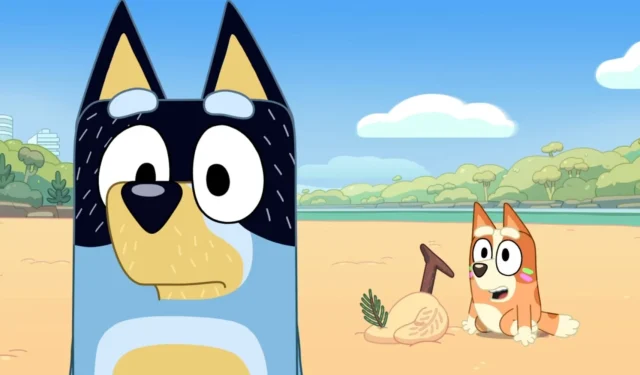For parents with young children, particularly those with a Disney+ subscription, the Australian animated series Bluey has likely become an integral part of family life. The series, celebrated for its excellent storytelling and relatable themes, offers a perfect blend of humor and poignant moments. Notably, one of the standout aspects of Bluey is the portrayal of its parental characters, Bandit and Chilli Heeler, who are depicted as imperfect yet admirable parents—refreshingly different from the often incompetent figures found in other children’s shows.
Bandit, the father of Bingo and Bluey, embodies a caring and playful spirit, consistently striving to be the best for his family. However, he is not without his flaws. This complexity is exemplified in season 3, episode 41, titled “Stickbird,” where viewers gain insight into Bandit’s emotional struggles.
A Deep Dive into the “Stickbird”Episode
Bandit’s Emotional Distraction
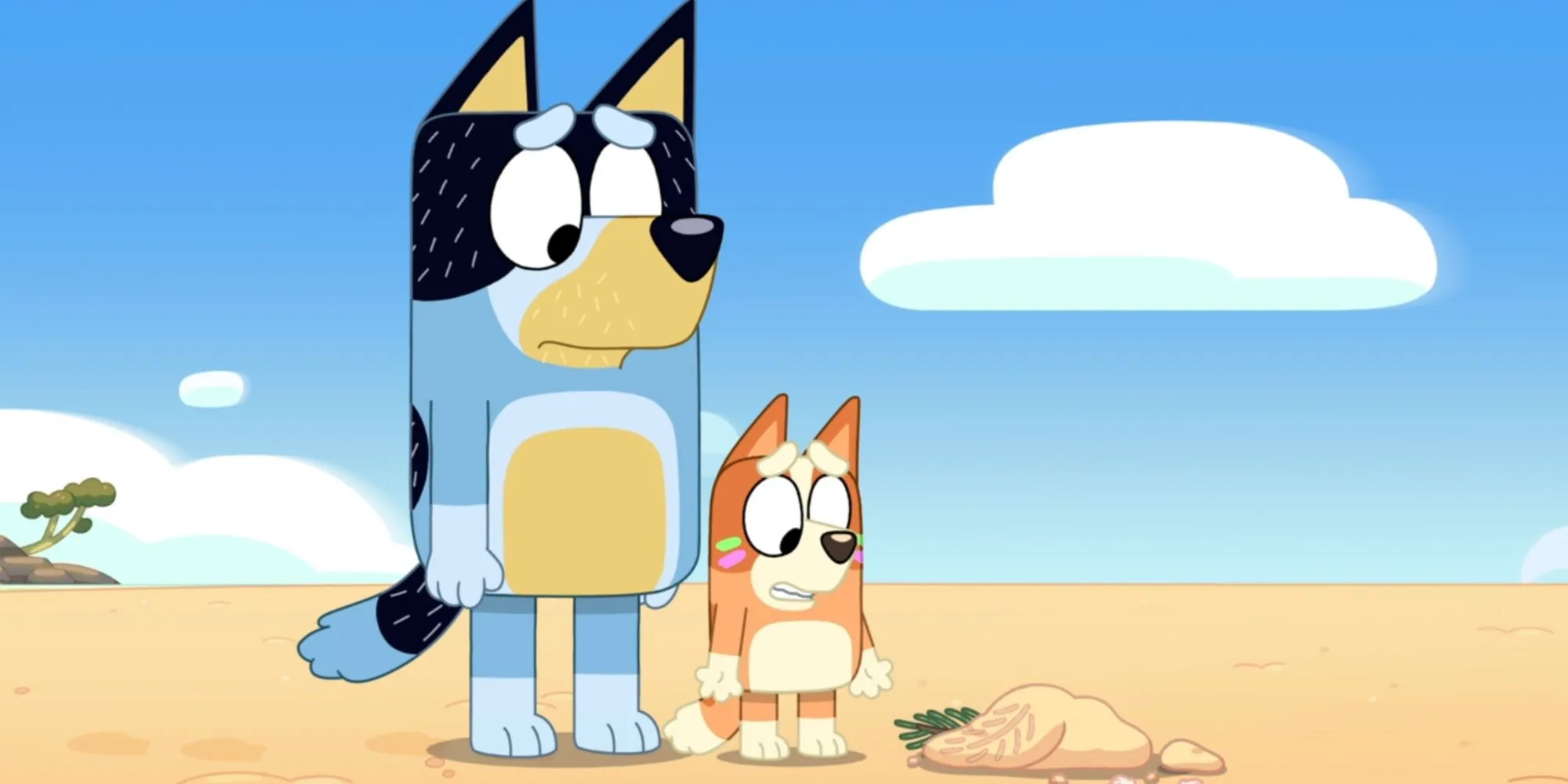
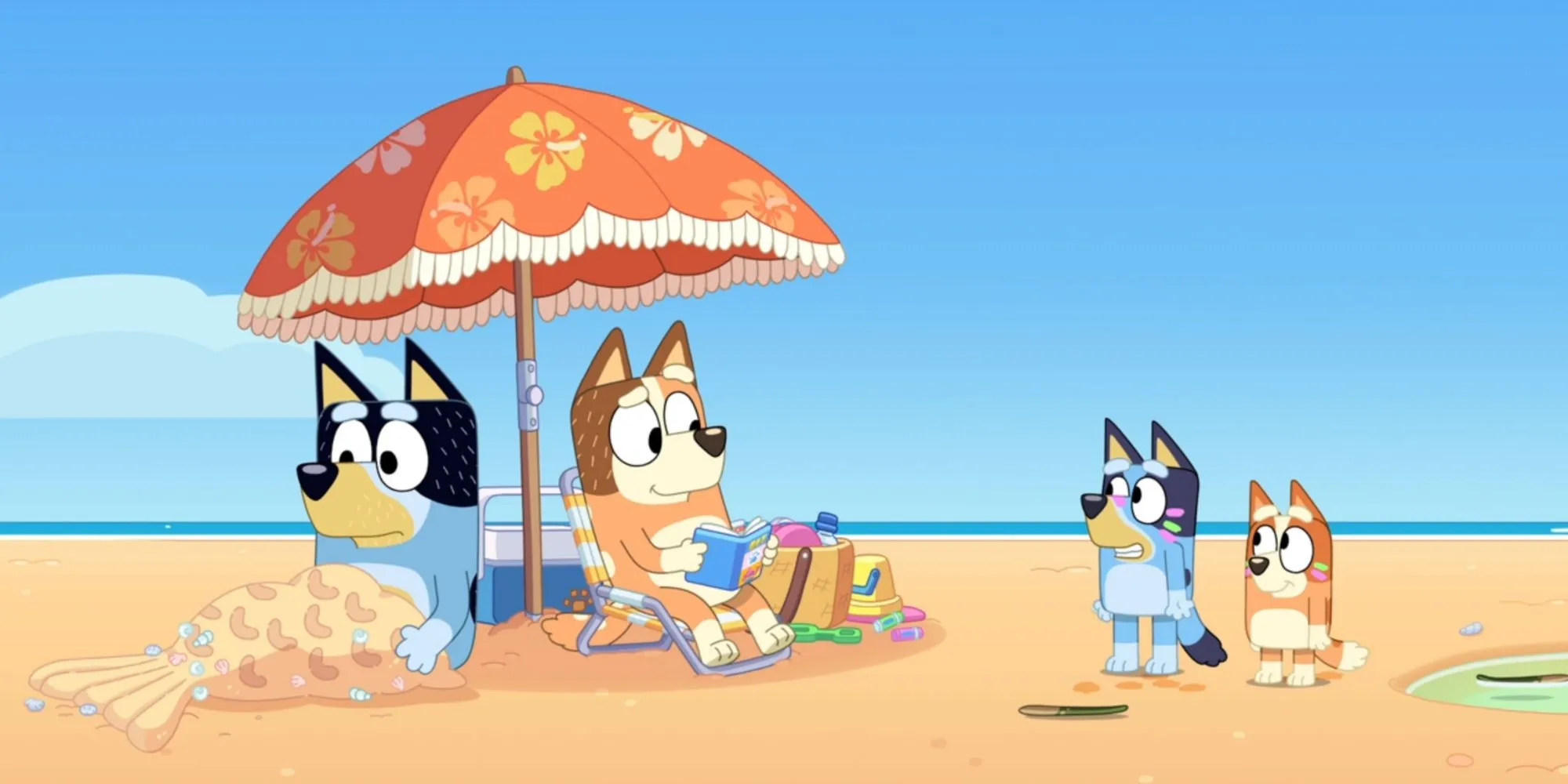
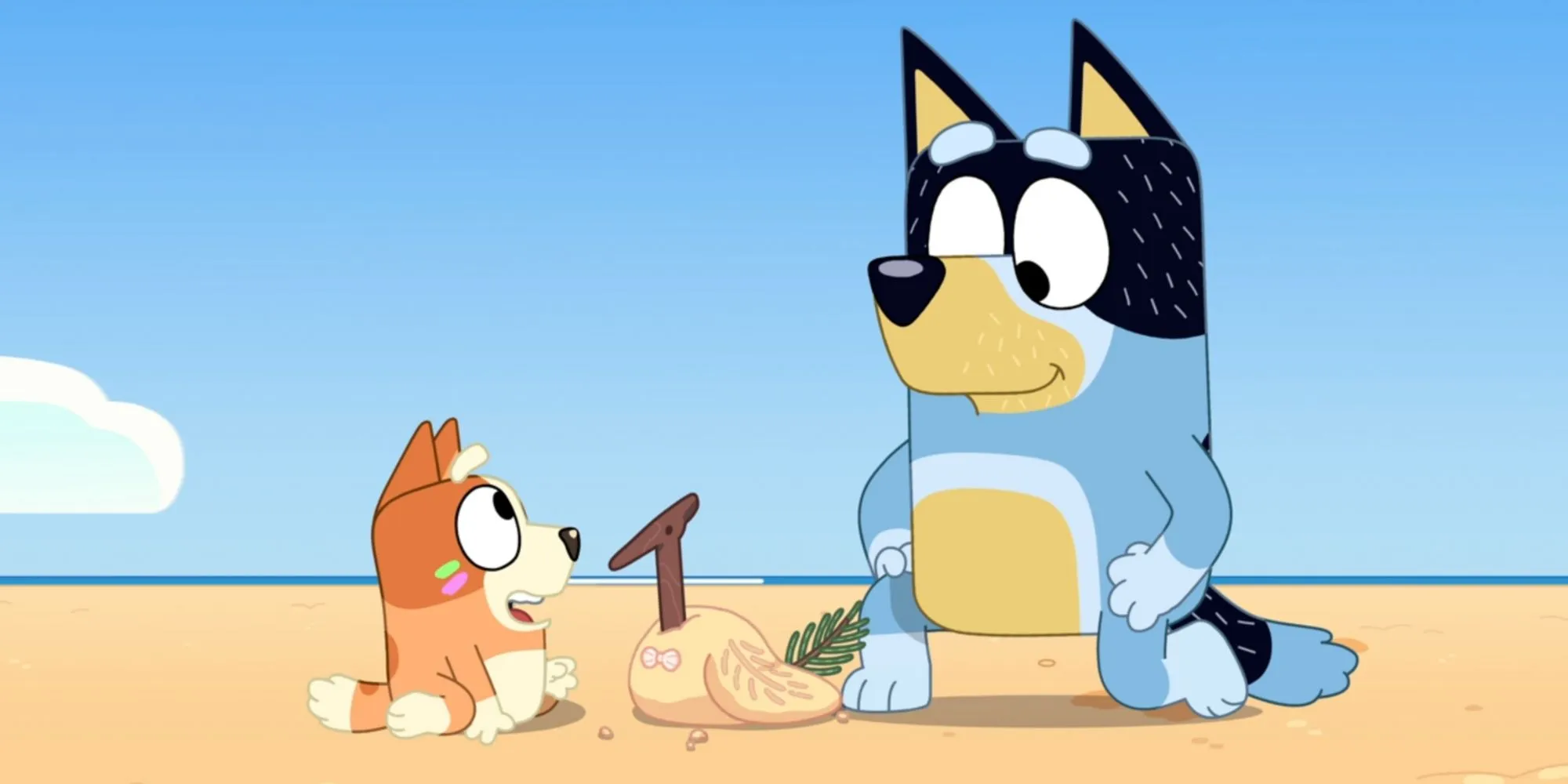
In “Stickbird,” the Heeler family embarks on a beach outing, with Bingo and Bluey delightfully engrossed in play. However, Bandit’s demeanor is noticeably affected by an unseen burden; Chilli urges him that he needs to “let it go” and not miss out on the joy around him. Ultimately, Bandit attempts to engage by helping Bingo create a “stickbird” sculpture using materials found on the beach.
Tragedy strikes when a group of children accidentally dismantles Bingo’s sculpture. This incident leaves Bingo devastated. To help her cope, Bluey introduces Bingo to a method she learned from her friend Mya, guiding her to gather her negative emotions and release them. Gratefully, Bingo finds comfort in this exercise, allowing her to resume her fun.
After his daughters depart, Bandit takes a reflective moment, staring out at the waves and mimicking Bluey’s earlier advice. He gathers his own concerns and tosses them into the ocean, seemingly letting go of his emotional weight before rejoining his family, somewhat uplifted.
Fan Theories on Bandit’s Upset
Insights from The Community
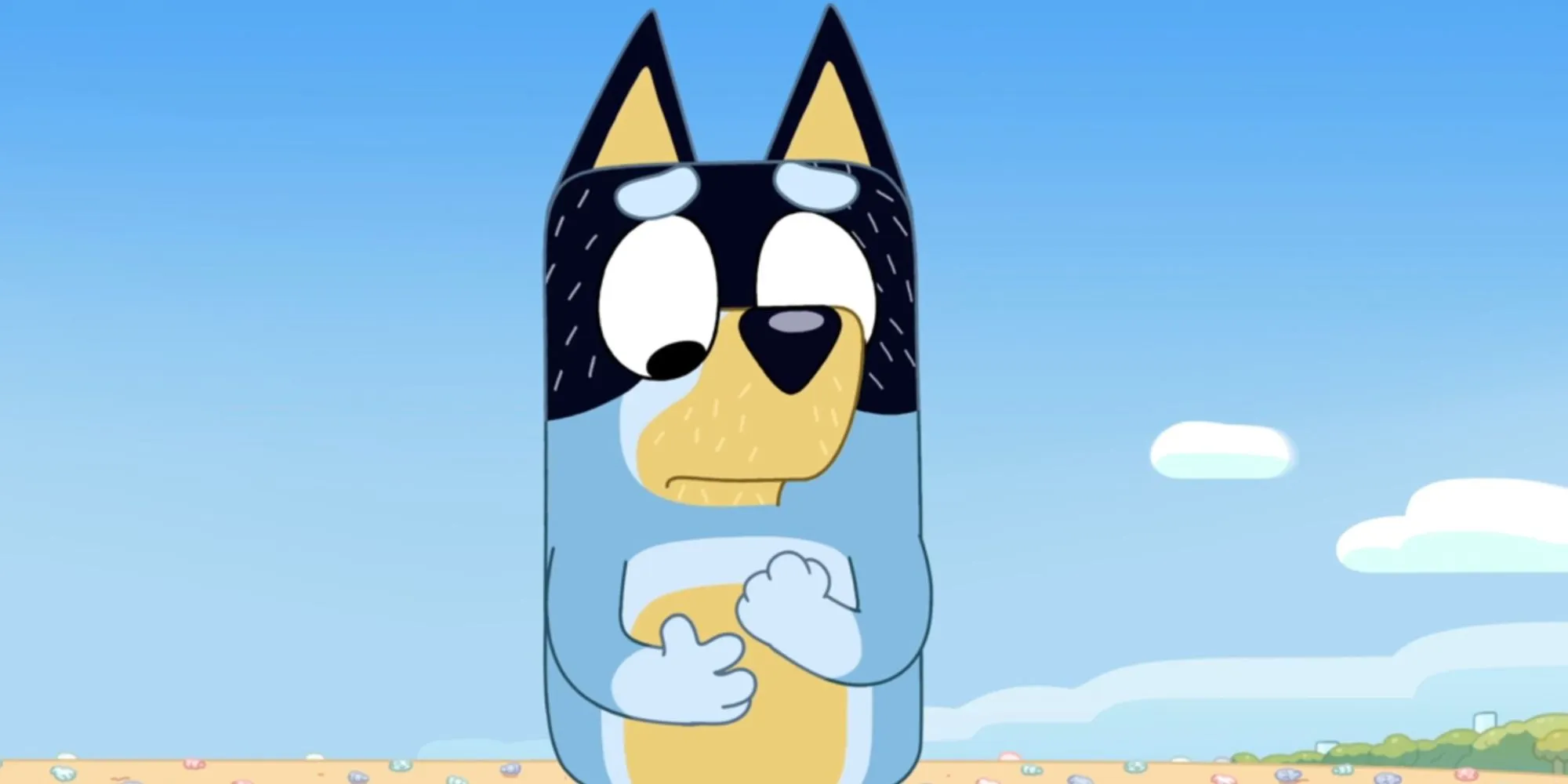
Given the emotional depth of the “Stickbird” episode, many fans speculate about the source of Bandit’s distraction and sadness. A post on Reddit revealed various intriguing theories. One user suggested that Bandit’s emotions could stem from challenges related to his career as an archeologist, referencing a poignant line about creativity and criticism:
“My theory is that he wrote an archaeology book, and it got panned by the critics, and he can’t get the negative reviews out of his head.”
Another fan proposed that perhaps Bandit faced conflicting feelings about an archaeological discovery, which was marred by another’s interference, causing him to reflect on loss and frustration.
“Perhaps Bandit made an archaeological discovery where someone else came along and ruined it for their own purposes…”
Moreover, the juxtaposition of Bandit’s disappointment with Bingo’s sadness provides a compelling commentary on parental and child emotions. Further insight is revealed in a subsequent episode titled “The Sign,” where we learn that Bandit contemplates a job change, a potential source of his emotional turmoil in “Stickbird.”
Insights from Joe Brumm on Bandit’s Emotion
Creative Inspiration from Personal Experiences
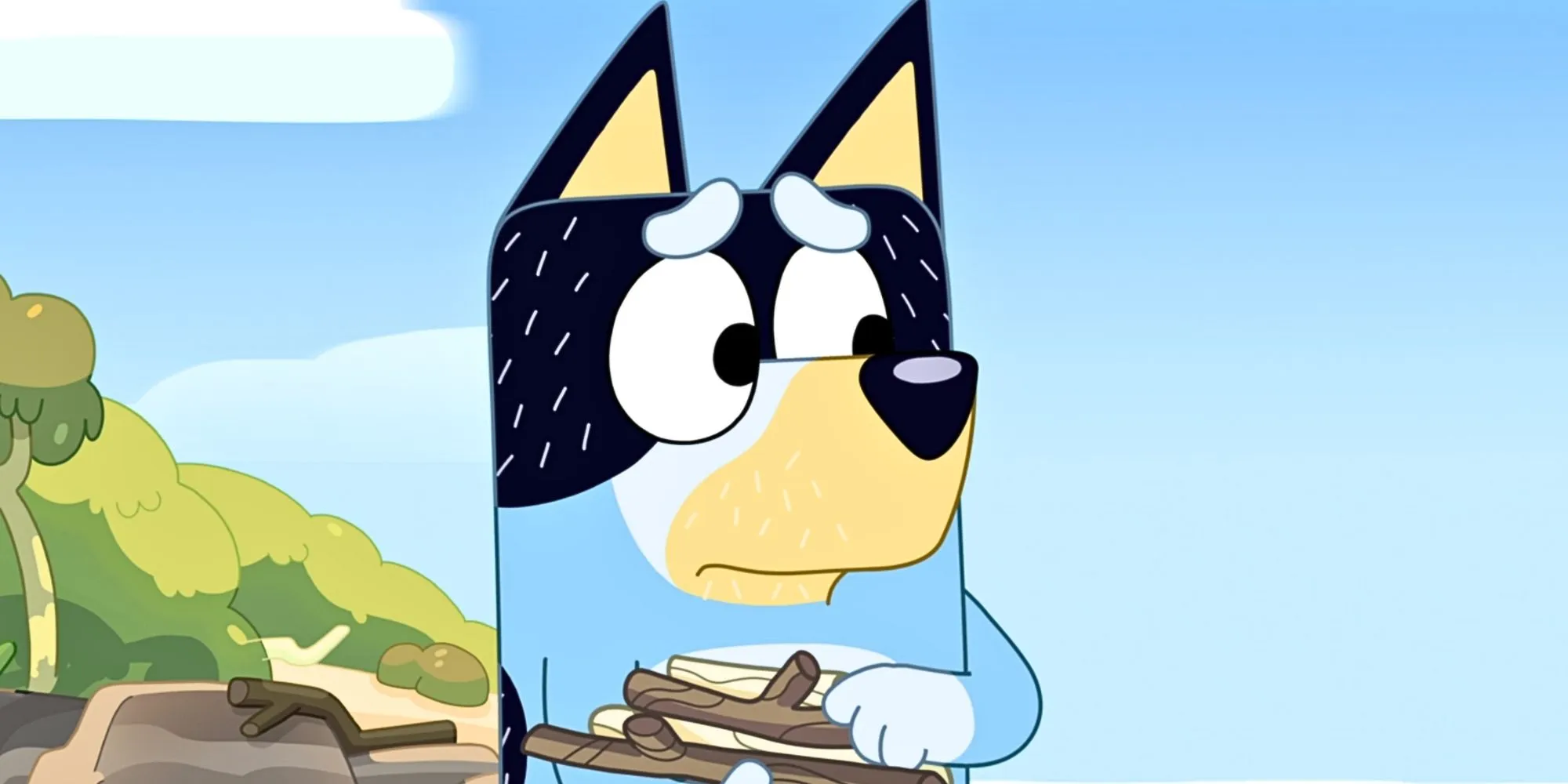
To gain clarity on Bandit’s emotional struggles, it is insightful to hear from Joe Brumm, the show’s creator. In a podcast episode titled Behind Bluey, Brumm discussed the intentions behind “Stickbird.” He emphasized that the specifics of Bandit’s worries are less critical than the overarching narrative of dealing with worry and distraction:
“It’s not important what [Bandit’s] worrying about… it could be a health thing, a work thing, a relationship thing… what matters is not solving what his issue is, but at least stopping the rumination.”
Brumm also shared that the episode was inspired by his own experiences with creativity and criticism, feeling the weight of external expectations:
“Once I make it, and I try to make it as beautiful as I can, it doesn’t belong to me… you kind of have to detach from all that.”
The Value in the Ambiguity of Bandit’s Feelings
Emotional Growth Over Specifics
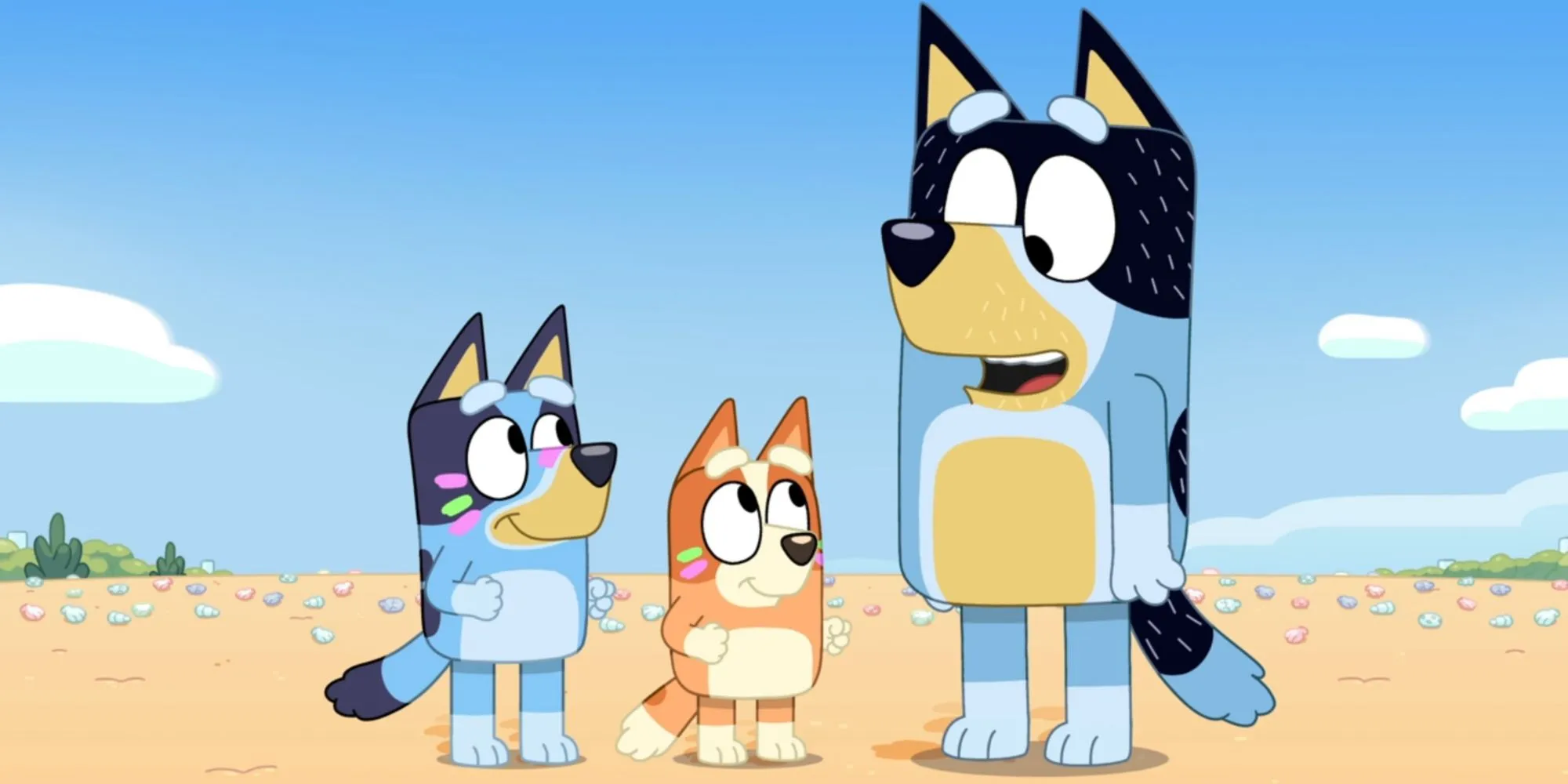
While it can be enjoyable to speculate about Bandit’s internal struggles in “Stickbird,” the show’s real message, according to Joe Brumm, is more significant: it is about Bandit’s journey to understand and manage his emotions instead of the specific reasons behind his feelings. This willingness to engage with his emotions allows him to reconnect with his family, ultimately reinforcing the show’s theme that both parents and children learn invaluable lessons from each other.
Moreover, the visual metaphor of Bandit throwing away his worries poignantly encapsulates the importance of being present as a parent. This moment remindingly conveys that parents, too, can become sidetracked by life’s responsibilities, losing sight of the joy of spending time with their children. In the end, Bluey serves not only as a device for children to grasp adult complexities but also as a gentle reminder for parents to cherish the present with little ones.
